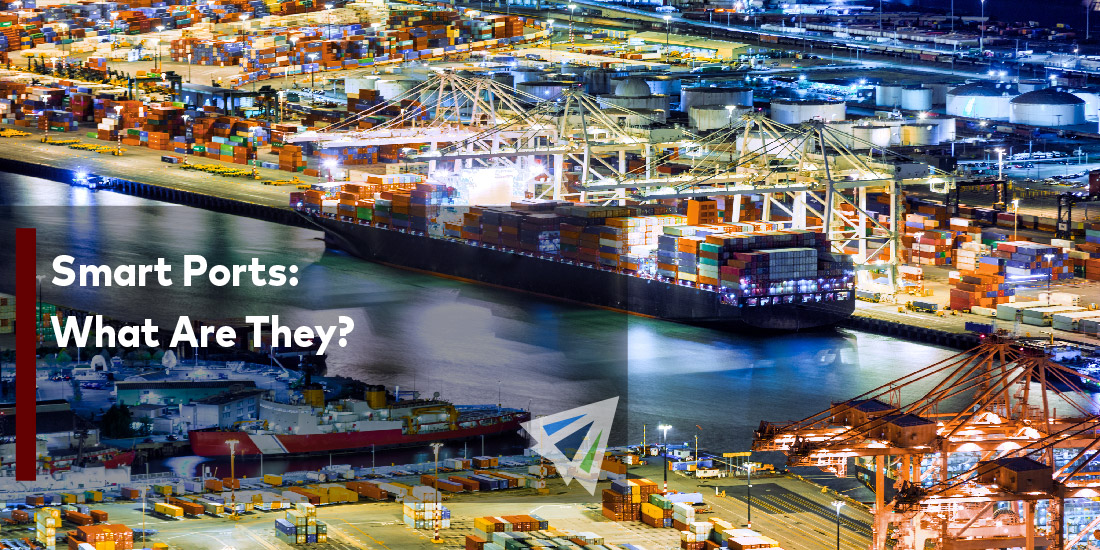A smart port is a modern and technologically advanced port that leverages innovative technologies and data-driven solutions to enhance its operational efficiency, safety, and sustainability, as defined by Port Technology.
There are many smart ports located around the world. Some notably larger ports that have smart capabilities are the Port of Rotterdam, Port of Hamburg, Port of Singapore, Port of Shanghai, and Port of Los Angeles, to name a few.
How Smart Ports Differ From Traditional Ports
Smart ports are different from traditional ports in the sense that there’s an increase of efficiency (though some could argue there’s some disadvantages with that), sustainability, and technology.
Some of the digital solutions smart ports have been adopting all over the world is Artificial Intelligence, Internet of Things (IoT), Digital Twin, Blockchain, and 5G. Here’s a brief overview of each:
Artificial Intelligence – refers to computer systems that simulate human intelligence processes by employing various techniques. The goal of A.I. is essentially to provide systems that are able to perform tasks and solve problems that would typically require human intelligence, per Port Technology.
Internet of Things (IoT) – refers to a network of interconnected devices, objects, and sensors that can collect and exchange data via the internet, thus, allowing these devices to communicate and share information with each other and make data-driven decisions without the need for humans, per Port Technology.
Digital Twin – refers to a virtual representation of an object, system, or process that leverages real-time data and advanced analytics to emulate behaviors and characteristics of the original physical entity, per Port Technology.
Blockchain – refers to a chain of blocks that are interconnected through cryptographic techniques. In the shipping industry it can offer transparent visibility into the movement of goods along the supply chain by providing real-time shipment tracking, as Port Technology defines.
5G – refers to the latest and most advanced network infrastructure that provides enhanced data speed through operating on higher-frequency radio waves, capacity and reliability while limiting latency, per Port Technology.
Of course, there are some disadvantages of smart ports.
Disadvantages of Smart Ports
One of the concerns with smart ports and their innovative use of technology is the cyber security risks.
As we have seen this year (Japan’s Port of Nagoya was hit in a ransomware attack, while truckload carrier Estes Express also experienced security issues in the fall of this year), cyberattacks are a growing threat. So, if an attack occurs, it could create significant losses and harm for the port.
Another disadvantage, or concern, with smart ports is the labor issues. The more technology/artificial intelligence that’s used, the more jobs it eliminates, which results in the loss of employment for many workers.
Port automation has been a pressing topic for many labor unions, most notably dockworker unions out on the different U.S. coasts. International Longshoremen’s Association President Harold J. Daggett is a large opposer of port automation.
Port automation is also fairly costly, especially for the initial investment that goes into it. Additionally, there’s the potential need for additional updates that would be required to ensure ports can keep up with advancements in software, and if ignored, could potentially leave ports open to security breaches.
Looking Ahead
Should you have any questions regarding this and how it could impact your shipments, please reach out to our team today.
Additionally, we have our weekly market updates that can provide you with relevant freight news, updates, developments across the industry, and more.
